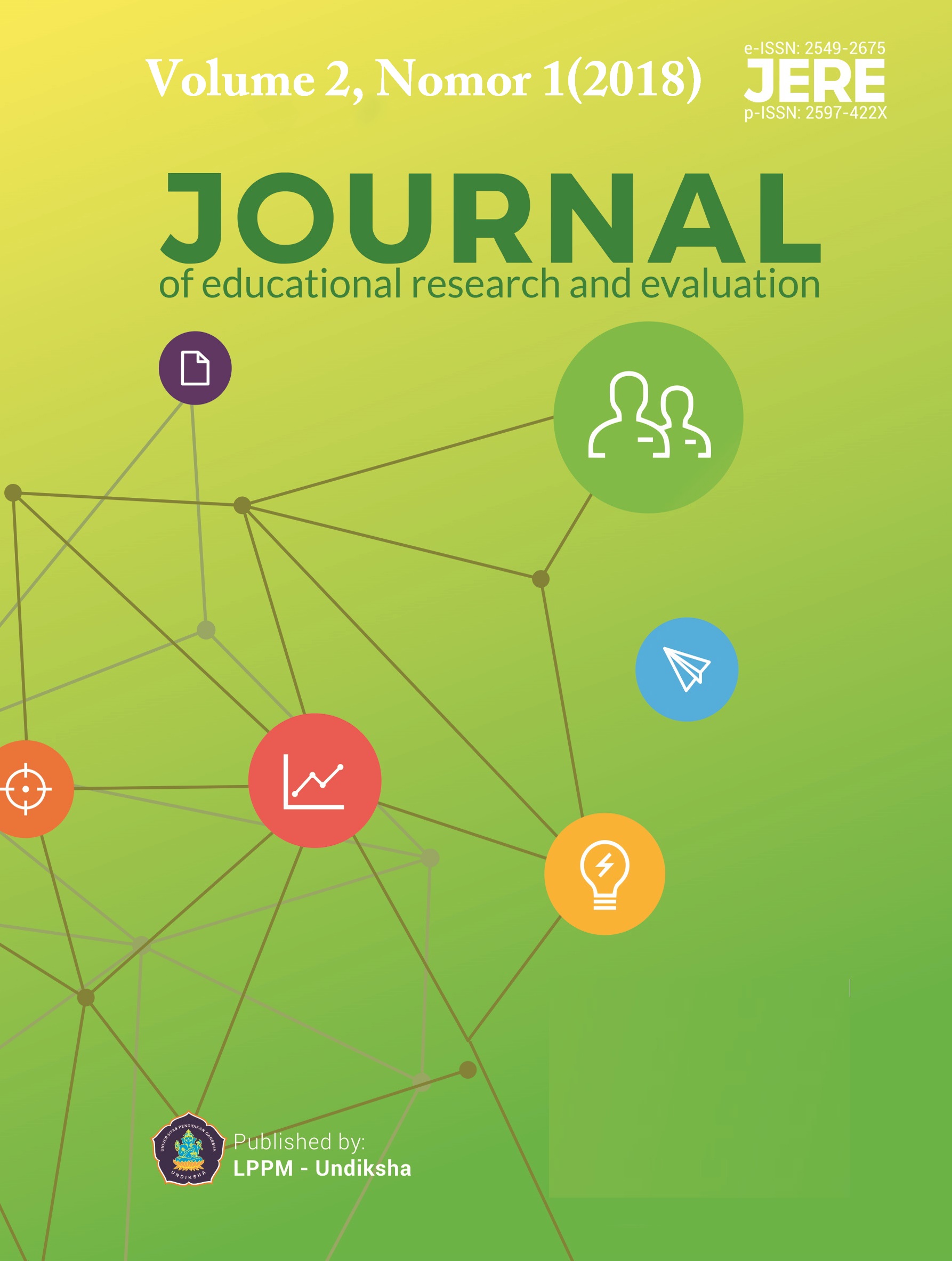Final Project and Minithesis on Economics Topics: Problems and Solution
DOI:
https://doi.org/10.23887/jere.v2i1.12998Kata Kunci:
Final Project, Minithesis, Diploma, Sarjana, EconomicsAbstrak
This paper tries to describe problems faced by students in general in writing final project or minithesis on Economics topics. As the last requirement every student at the Sarjana and Diploma levels, final project or minithesis is often a new and difficult problem faced by the students as they enter the last semester. In some cases, the students besides being late to graduate also drop out because they do not finish the final project or minithesis at the end of the study program. One of the factors that cause this is the studens’ failure to understand what to be chosen as a problem, to formulate the problem, or to find an appropriate title for the problem, so that the solution to the problem has been formulated. In this paper is described the technique to understand something which is appropriate to be made a title for a final project or minithesis, then how to formulate problems, to select a method of study which is suitable for the problem investigated, the data collection technique and data analysis. Through this paper it is expected that the students at the Sarjana and Diploma levels can understand how to write a final project or thesis in a simple away.Referensi
Ary, Donald. Lucy Cheser Jacobs and Asghar Razavieh. 2002. Introduction to Research in Education. Sixth ed. Belmont CA: Wadsworth.
Aswati, F,H. (2014). Hubungan Kecerdasan Emosional dengan Kemampuan Menyelesaikan Skripsi Pada Mahasiswa Program Studi Ilmu Keperawatan Stikes Aisyiyah Yogyakarta. Naskah Publikasi. Program Studi Ilmu Keperawatan Stikes Aisyiyah Yogyakarta.
Danim, Sudarwan. 2003. Riset Keperawatan Sejarah dan Metodologi. Jakarta: EGC.
Hamidi, 2004. Metode Penelitian Kualitatif: Aplikasi Praktis Pembuatan Proposal Dan Laporan Penelitian. Malang :UMM Press.
Iswahyudi. 2015. Permasalahan Penyusunan Tugas Akhir Mahasiswa Bidang Pengkajian Seni Program Studi Pendidikan Seni Kerajinan Fbs Uny. Jurnal Seni Dan Pendidikan Seni (IMAJI). Volume 13, NomoUD 2, Tahun 2015.
Kuntjojo. 2009. Metode Penelitian. Kediri: Universitas Nusantara PGRI.
Kriyantono, Rachmat.2006. Teknik Praktis Riset Komunikasi.Jakarta: Kencana
Nasution. 2009. Berbagai Pendekatan Dalam Proses Belajar dan Mengajar. Jakarta: PT Bumi Aksara. Nasution. 2009. Berbagai Pendekatan Dalam Proses Belajar Dan Mengajar. Jakarta: PT Bumi Aksara.
Prajarto, Nunung. 2010. Analisis Isi Metode Penelitian Komunikasi. Yogyakarta: Fisipol Universitas Gajah Mada.
Sugiyono. 2012. Metode Penelitian Kuantitatif Kualitatif dan R&D. Bandung: Alfabeta.
Sugiyono. 2014. Metode Penelitian Kuantitatif Kualitatif dan R&D. Bandung: Alfabeta.
Supriyanto, Achmad Sani. Dan Masyhuri Machfudz. 2010. Metodologi Riset: Manajemen Sumberdaya Manusia. Malang: UIN-Maliki Press.
Sukidin. Basrowi. Suranto. 2002. Manajemen Penelitian Tindakan Kelas. Surabaya: Insan Cendekia.
Unduhan
Diterbitkan
Cara Mengutip
Terbitan
Bagian
Lisensi
Authors who publish with the Journal of Evaluation and Research in Education (JERE) agree to the following terms:
- Authors retain copyright and grant the journal the right of first publication with the work simultaneously licensed under a Creative Commons Attribution License (CC BY-SA 4.0) that allows others to share the work with an acknowledgment of the work's authorship and initial publication in this journal.
- Authors are able to enter into separate, additional contractual arrangements for the non-exclusive distribution of the journal's published version of the work (e.g., post it to an institutional repository or publish it in a book), with an acknowledgment of its initial publication in this journal.
- Authors are permitted and encouraged to post their work online (e.g., in institutional repositories or on their website) prior to and during the submission process, as it can lead to productive exchanges, as well as earlier and greater citation of published work. (See The Effect of Open Access)











